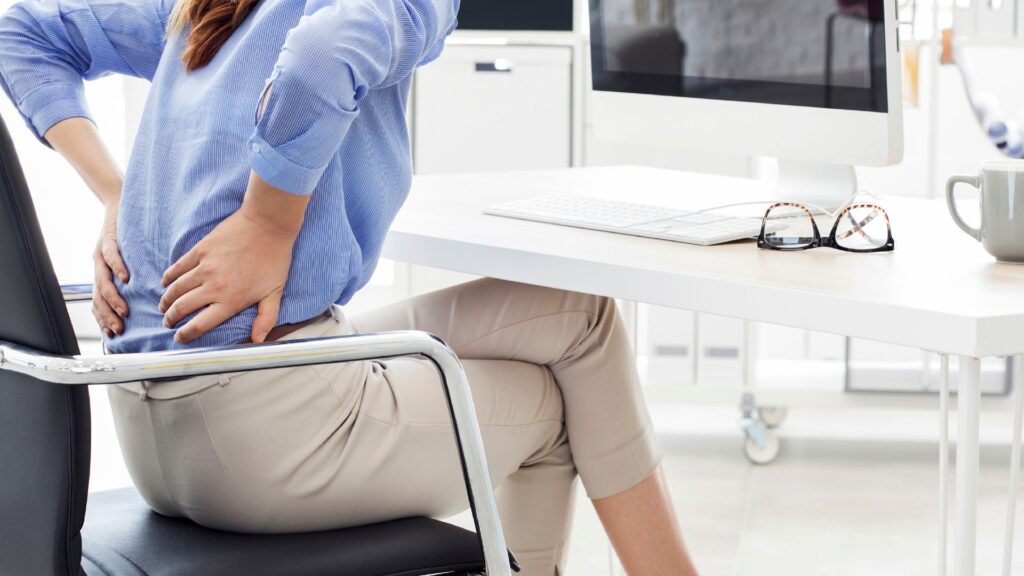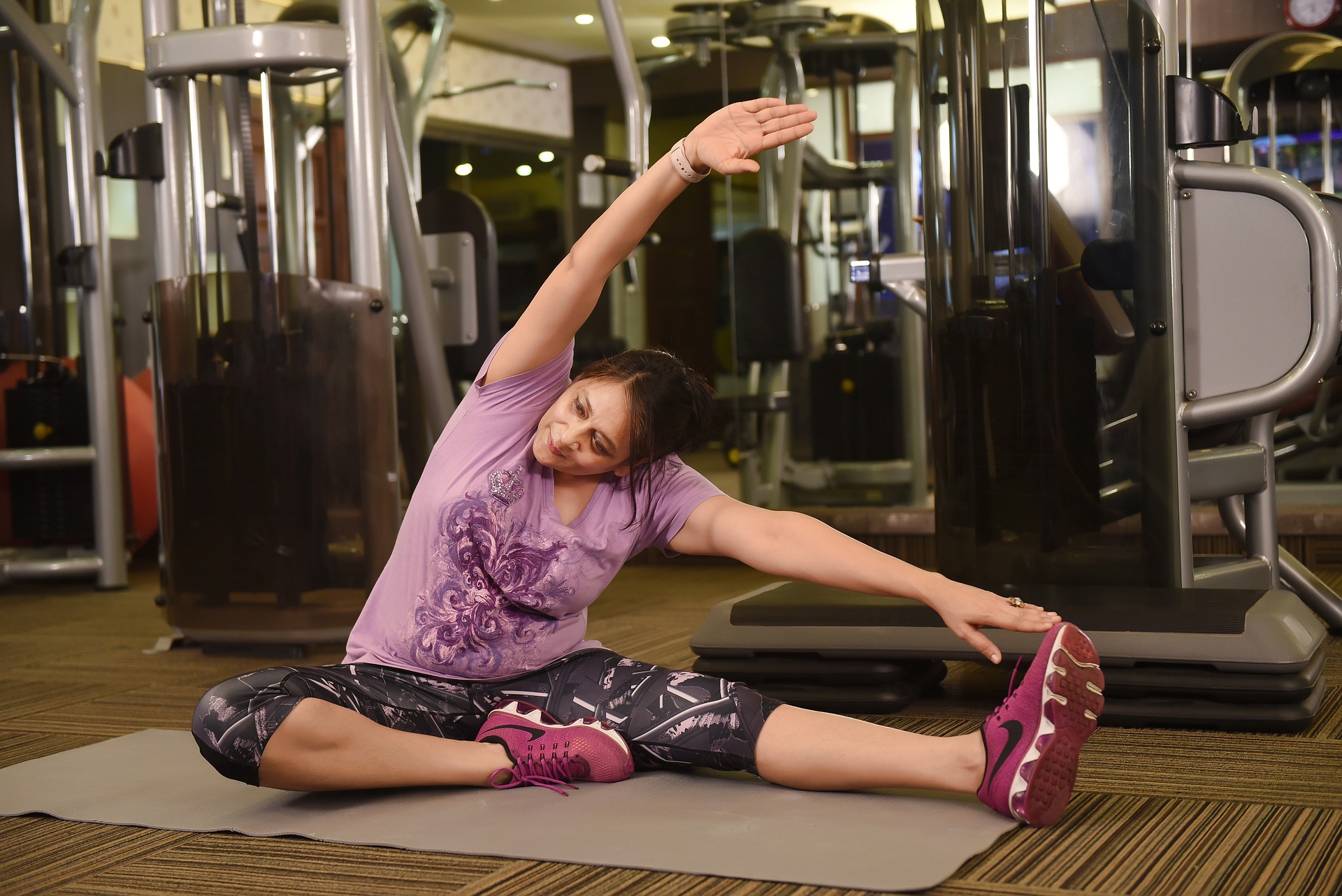Back pain during periods is a common problem experienced by many women. The pain can be mild or severe and can affect the lower back or the entire back. While the pain is usually related to the menstrual cycle, it is important to understand the underlying causes of the pain and how to manage it effectively.
Understanding the Menstrual Cycle
Before we discuss the causes of back pain during periods, it is important to understand the menstrual cycle. The menstrual cycle is the natural process that occurs in a woman’s body every month to prepare for pregnancy. The cycle involves the shedding of the lining of the uterus, which causes bleeding.
The menstrual cycle totally depends on hormones, basically estrogen, and progesterone. These hormones regulate the growth and shedding of the uterine lining, as well as other changes in the body.
Common Causes of Back Pain
- Hormonal Changes: Fluctuations in hormone levels during the menstrual cycle can cause the muscles in the lower back to contract, leading to pain and discomfort.
- Endometriosis: Endometriosis is a condition where the tissue that lines the uterus grows outside the uterus, causing pain and inflammation.
- Fibroids: Fibroids are noncancerous growths that develop in the uterus and can cause pain and discomfort during periods.
- Pelvic Inflammatory Disease (PID): PID is an infection of the reproductive organs that can cause back pain during periods.
- Adenomyosis: Adenomyosis is a condition where the tissue that lines the uterus grows into the muscular wall of the uterus, causing pain and discomfort during periods.
- Ovarian Cysts: Ovarian cysts are fluid-filled sacs that develop on the ovaries and can cause pain and discomfort during periods.
- Uterine Polyps: Uterine polyps are growths that develop in the lining of the uterus and can cause pain and discomfort during periods.
- Intrauterine Device (IUD): An IUD is a contraceptive device that is inserted into the uterus. Some women experience back pain as a side effect of the IUD.

How to Manage Back Pain
- Pain Medication: Over-the-counter pain medication, such as ibuprofen, can help relieve back pain during periods.
- Heat Therapy: Applying heat to the lower back, such as using a heating pad, can help relieve back pain during periods.
- Exercise: Regular exercise, such as walking, yoga, or swimming, can help relieve back pain during periods.
- Relaxation Techniques: Relaxation techniques, such as deep breathing or meditation, can help reduce stress and relieve back pain during periods.
- Dietary Changes: Eating a healthy diet that is rich in fruits, vegetables, and whole grains can help reduce inflammation and relieve back pain during periods.
Conclusion
Back pain during periods can be a frustrating and uncomfortable problem, but it is usually manageable. Understanding the causes of the pain and how to manage it effectively can help women stay comfortable and pain-free during their menstrual cycle.
FAQs
- does it feel normal to have back pain during periods?
Yes, it is common for women to experience back pain during their menstrual cycle.
- What is the best way to manage back pain during periods?
The best way to manage back pain during periods is to take over-the-counter pain medication, apply heat to the lower back, exercise regularly, practice relaxation techniques, and eat a healthy diet.
- Can hormonal birth control help relieve back pain during periods?
Yes, hormonal birth control can help regulate hormone levels and reduce back pain during periods.
Home remedies for back pain in periods
Effective Home Remedies for Back Pain in Periods
Suffering from back pain during periods? Here are some easy and natural home remedies to alleviate the discomfort and make your period experience more bearable.
Introduction:
Back pain while periods is a common problem that many women face. The pain can be excruciating and can significantly impact your daily routine. Taking painkillers may provide temporary relief, but it’s not always the best option. If you’re looking for natural ways to relieve your back pain, you’re in luck. In this article, we’ll discuss some effective home remedies for back pain in periods that you can try.
One of the most effective ways to alleviate back pain during periods is to use a hot compress. It supports to relax of the muscles and eases the pain. Here’s how you can use it:
- place a towel in warm water and wring out the excess water.
- keep the towel on your lower back for 15 to 20 minutes.
- Repeat as needed.
Exercise
Regular exercise can help reduce back pain during periods. It helps to improve blood flow and release endorphins, which are natural painkillers. there are some exercises that you should try to heal your back pain:
- Walking
- Yoga
- Stretching
Massage
Massaging the affected area can help to reduce back pain during periods. It helps to improve blood circulation and reduce muscle tension. Here’s how you can do it:
- Lie down on your stomach.
- Ask someone to massage your lower back with their fingers or a massage ball.
- Apply gentle pressure and massage for 10-15 minutes.
Ginger Tea
Ginger has anti-inflammatory properties that can help to reduce back pain during periods. Drinking ginger tea can also help to ease cramps and reduce bloating. Here you will find the way to make ginger tea:
- Boil water and add fresh ginger slices.
- Simmer for 10 minutes.
- Strain and add honey or lemon for taste. Essential Oils
Using essential oils can also help to reduce back pain during periods. They have anti-inflammatory and pain-relieving properties. Here are some essential oils that you can use for relieving your back pain:
- Lavender oil
- Peppermint oil
- Eucalyptus oil
FAQs
Q: What causes back pain during periods? A: Back pain during periods is caused by the release of prostaglandins, which are hormones that cause the uterus to contract.
Q: Can diet affect back pain during periods? A: Yes, a healthy diet can help to reduce back pain during periods. Eating foods that are rich in omega-3 fatty acids, magnesium, and calcium can help to reduce inflammation and relieve pain.
Q: When should I see a doctor for back pain during periods? A: If your back pain is severe and does not go away with home remedies, you should see a doctor.
Conclusion:
Back pain during periods can be a real pain, but you don’t have to suffer through it. With these simple and natural home remedies, you can alleviate the discomfort and make your period experience more bearable. Don’t ignore to listen to your body and give it the attention and care it deserves. Don’t let back pain keep you from pleasurable life!
At Back Pain Solutions, we understand how debilitating back pain can be. Whether you’re dealing with chronic pain or a recent injury, finding effective relief can be a challenge. Fortunately, there are a variety of approaches you can take to manage your back pain and get back to enjoying your life. In this article, we’ll explore some of the most effective ways to relieve back pain and improve your overall health and well-being.
Understanding the Causes of Back Pain Before we dive into the various treatments for back pain, it’s important to understand what causes it in the first place. Back pain can be caused by a number of factors, including:
- Poor posture: Sitting or standing with poor posture can put strain on the muscles and ligaments in your back, leading to pain and discomfort.
- Injury: Trauma to the back, such as from a fall or car accident, can cause acute or chronic pain.
- Arthritis: Osteoarthritis and other types of arthritis can cause inflammation and pain in the joints of the back.
- Herniated disc: When the cushioning between the vertebrae in your spine ruptures, it can put pressure on the nerves and cause pain.
- Muscle strain: Overexertion, lifting heavy objects, or sudden movements can cause strain on the muscles in your back, leading to pain and stiffness.
Effective Treatments for Back Pain Now that we’ve covered some of the common causes of back pain, let’s explore some of the most effective treatments for managing it:
- Physical therapy: Working with a physical therapist can help you strengthen your back muscles and improve your posture, reducing the likelihood of future injuries and pain.
- Massage therapy: A skilled massage therapist can help release tension and reduce pain in the muscles of your back.
- Chiropractic care: Chiropractic adjustments can help realign your spine, relieving pressure on the nerves and reducing pain.
- Acupuncture: This ancient practice involves the insertion of thin needles into specific points on the body to alleviate pain and promote healing.
- Medication: Over-the-counter pain relievers like ibuprofen can be effective in managing acute back pain, while prescription medications like muscle relaxants may be necessary for more severe cases.
In addition to these treatments, there are a number of lifestyle changes you can make to improve your overall back health:
- Exercise regularly: Staying active can help keep your back muscles strong and flexible, reducing the likelihood of injury and pain.
- Maintain good posture: Whether you’re sitting at a desk or standing for long periods of time, maintaining good posture can help reduce strain on your back.
- Quit smoking: Smoking has been linked to an increased risk of back pain, so quitting can help reduce your risk.
- Maintain a healthy weight: Excess weight can put strain on your back muscles and joints, so maintaining a healthy weight can help reduce your risk of pain and injury.
Conclusion
If you’re struggling with back pain, it’s important to seek out effective treatment options. From physical therapy and massage to chiropractic care and acupuncture, there are a variety of approaches that can help alleviate pain and promote healing. By making lifestyle changes like exercising regularly and maintaining good posture, you can reduce your risk of future back pain















